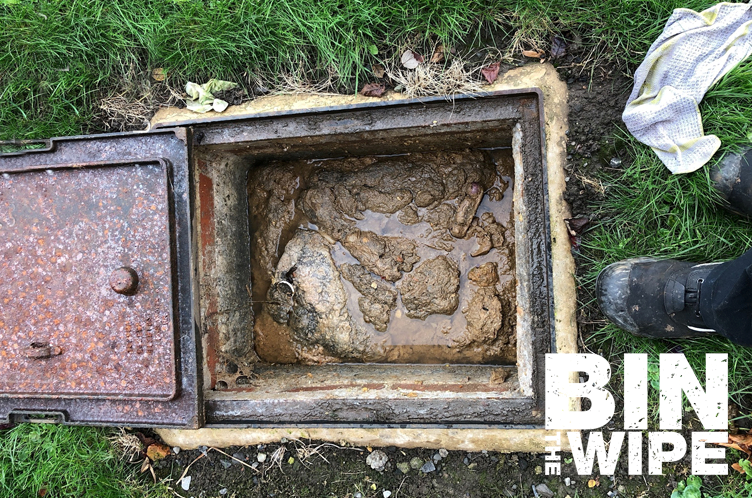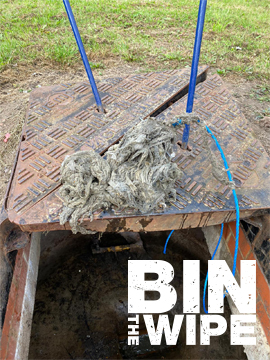A campaign to protect homes and the environment by encouraging people to dispose of used wipes properly is coming to Consett and Stanley.
Northumbrian Water’s Bin The Wipe campaign aims to reduce sewer blockages that can cause waste to back up into homes and businesses or into the environment.

Wipes do not break up in the same way that toilet paper does when flushed. This means they can settle or catch in pipes and start or contribute to blockages.
Data from blockages has identified the DH6 9 post code area of Stanley and DH8 8 in Consett as ‘hot spots’ where the flushing of wipes is common. A team of sewer workers is going into the area to investigate, and to educate customers about the issue.
In 2019, 64% of the blockages Northumbrian Water cleared from its sewer network contained wipes. This led to the launch of the Bin The Wipe campaign in January 2020.
Bin The Wipe aims to use educational letters and doorstep discussions to encourage those who do so to change their behaviour. The team will monitor the area’s sewers and track the flushing of wipes back to the properties from which they were flushed.
Simon Cyhanko, Northumbrian Water’s Head of Wastewater Networks, said: “We know that lots of wipes are being flushed in these areas of Consett and Stanley. That’s putting homes, businesses and the environment at risk of sewer flooding. That can be horrific.

“So, our Bin The Wipe team are heading into these areas to work with those customers who are doing this. We want to help them understand why it’s important to change that behaviour.
“We know that not everyone in these areas will flush wipes, and we thank those who dispose of them properly, in the bin. But their homes are no less at risk than those of the people who do flush wipes, because the blockage can build up anywhere in the pipes and cause a problem.
“We would ask all customers in the area to not use their toilets as a bin, even if they think ‘it’s just one little wipe’. Those individual wipes can meet lots of others as they pass through the network, and add to a blockage.
“It’s a simple change to make. All we ask is that people Bin The Wipe.”
